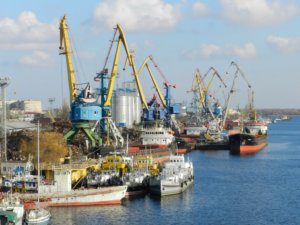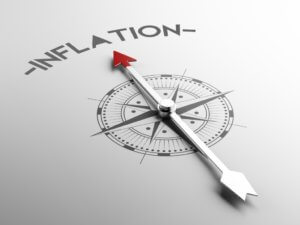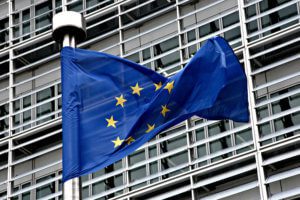
The public restaurant Urban Space 500, being launched under the social franchise contract of the Urban Space 100 Project in Ivano-Frankivsk, will be opened in Kyiv in December and will be located at 9, Hrynchenko Street, the founder of the Teple Misto platform, businessman, restaurant-keeper (the 23 restaurants chain) Yuriy Fyliuk has said in an interview with Interfax-Ukraine.
“Urban Space 500 is a social franchise that Teple Misto handed over to the NGO Insha Osvita. This organization began to collect social investors, selected the management company – Druzi Cafe & Bar is fully engaged in the implementation of this project. Today, they have all 500 donators. Reconstruction of the premises is under way. They are scheduled to open [the restaurant] on December 1,” Fyliuk said.
He said that the restaurant model provides for a certain number of donators (one hundred in Ivano-Frankivsk and five hundred in Kyiv), which make a one-time non-refundable contribution of $1,000. Donators become participants in a public organization, which in turn is the founder of a limited liability company that carries out operational activities.
Some 80% of the net profit of the restaurant is returned to the public organization, and its general meeting decides which city development projects to support using these funds. The remaining 20% goes to the management company.
“We received more than 250 requests from 15 countries for the replication of this experience. Today, the first franchise went to Kyiv. According to the plan, the two next cities are Kramatorsk and Poltava. There are requests from Berlin, San Francisco, other capitals of European countries, from Malaysia. It is very interesting [to realize it in] Berlin and Francisco. I think it will happen someday, but we are moving step by step. This is not easy project for it to take place. There must be a lot of factors coming together,” Fyliuk said.

Some 20 large international companies are interested in the concession of Kherson Maritime Merchant Port and Olvia Stevedoring Company, Minister of Infrastructure Volodymyr Omelyan has said. “We expect that the tender on Kherson and Olvia seaports will start this year. We have more than 20 applications from powerful companies,” the minister said at a press conference in Kyiv. According to him, large international companies expressed their interest.
As reported, with reference to the Infrastructure Ministry, previously Qatar expressed interest in the concession of Olvia and Kherson seaports.
INTERESTED, INTERNATIONAL COMPANIES, KHERSON, OLVIA STEVEDORING COMPANY, PORT

The National Bank of Ukraine (NBU) has set a target inflation rate at 5% from December 2019.
This is stipulated in the NBU’s monetary policy strategy approved by the NBU council in July and posted on the regulator’s website on Tuesday.
“The best benchmark for inflation (the Consumer Price Index year-over-year) … is determined by the NBU at 5% ± 1 pp. The phase of reducing the inflation target from the current level to 5% will take place until December 2019. And since December 2019, this goal set at % will be constant and can only be revised downwards if the volatility of the hryvnia forex rate reduces, reference prices change and the effects of the convergence of the Ukrainian economy are lowered to the level of the countries that are major trading partners,” the document says.
According to the strategy, in certain periods, inflation may deviate from the established benchmark because of the influence of factors not subject to the NBU’s monetary policy. For example, it could be a change in commodity prices or a deviation of administratively regulated prices from the previously declared level. However, the NBU, as before, will use monetary tools to return inflation to the target numbers, it said.
The document also stipulates the application of the interest rate corridor for overnight credit and deposit transactions to manage short-term interest rates of the interbank credit market by limiting their fluctuations around the key interest rate. It also provides for the possibility of applying differentiated mandatory reserve requirements to improve the effectiveness of regulating the liquidity of the banking system and encouraging banks to raise funds primarily in the national currency and for a longer period.
The NBU monetary policy strategy confirms the need for institutional independence of the regulator. It says that the NBU should avoid any form of fiscal dominance, including direct or indirect support of budget expenditures.
As reported, the document is the successor of the NBU’s monetary policy strategy for 2016-2020, which was approved by the board of the central bank in August 2015.
The new monetary policy strategy retains key elements of the inflation targeting regime, defines the main objectives of the monetary policy, the principles, tools and directions of their evolution for the medium term. At the same time, the specifics of the application of the monetary policy tool will be reviewed annually, taking into account the state and risks of the external and internal macroeconomic environment, and will be approved by the NBU Council in the annual Monetary Policy Fundamentals.

The share of non-performing loans (NPL) in the total volume of loans in Ukraine in July 2018 fell to 55.06% from 55.68%, according to the National Bank of Ukraine (NBU). The central bank said that in particular, the share of NPL in the loan portfolio of PrivatBank fell to 84.54% from 84.64%, in other state-owned banks to 59.09% from 59.11%, in portfolios of foreign bank groups – to 41.75% from 42.54% and banks with private capital it grew to 24.6% from 24.09%.
The volume of NPL of banks in July grew by UAH 5.092 billion, to UAH 631.231 billion, including in state-owned banks by UAH 7.073 billion, to UAH 419.963 billion, in banks with private capital – by UAH 865 million, to UAH 31.817 billion and in banks of foreign bank groups – by UAH 871 million, to UAH 168.338 billion.
The share of all NPL of the loan portfolio of the corporate sector in July fell to 57.28% from 57.83% and in the loan portfolio of individuals – to 50.72% from 51.32%.

Vice-President of the European Commission in charge of the Euro, Social Dialogue, Financial Stability, Financial Services and Capital Markets Union Valdis Dombrovskis will visit Ukraine on September 13-14, where he will take part in signing the EU macro-financial assistance program worth EUR 1 billion, according to the European Commission.
Dombrovskis will meet with Ukrainian Prime Minister Volodymyr Groysman and acting Finance Minister Oksana Markarova.
In addition, he will participate in the forum of the Yalta European Strategy (YES).

The Verkhovna Rada has ratified the agreement between the governments of Ukraine and the Republic of Turkey on mutual assistance and investment protection, which provides Ukrainian and Turkish investors with assistance in use of investments, as well as secures guarantees against illegal expropriation and nationalization. Some 244 people’s deputies supported the corresponding bill with the quorum being 226 votes.
According to the website of the Ministry of Economic Development and Trade, the agreement also provides for the free transfer of payments and the application of internationally recognized dispute settlement procedures.
In addition, the parliament ratified the trade agreement between Ukraine and the Kingdom of Thailand.
The corresponding bill, providing for the creation of a special intergovernmental commission on trade, was supported by 241 people’s deputies.